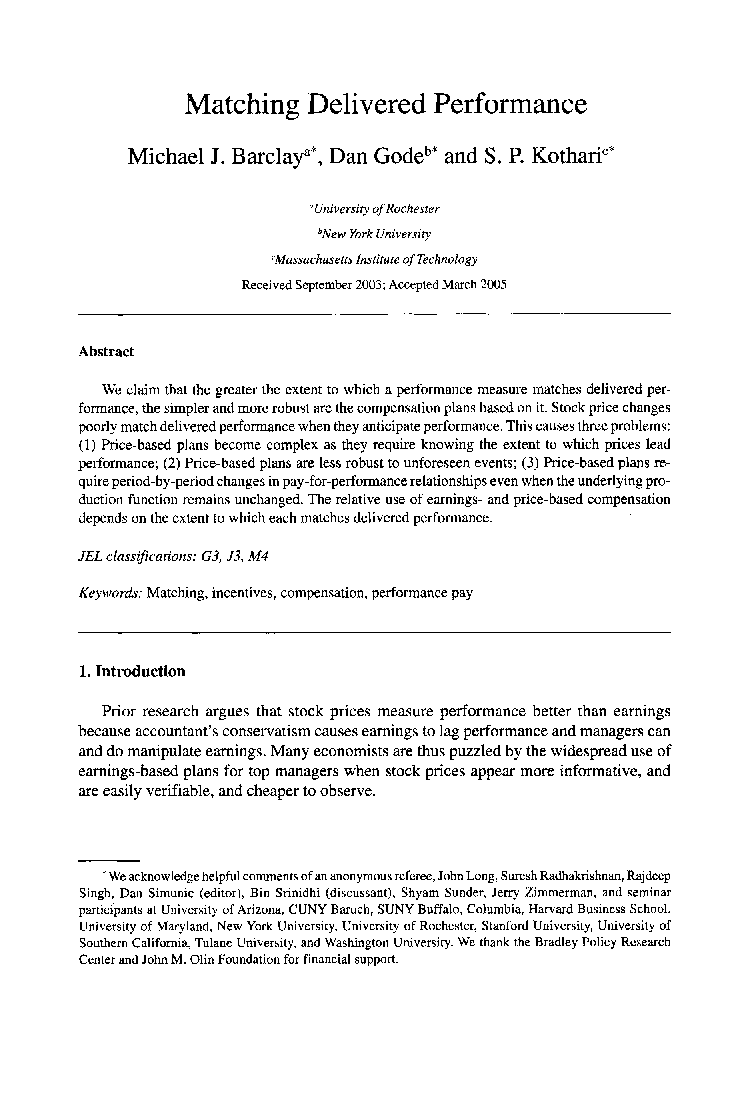| Article ID | Journal | Published Year | Pages | File Type |
|---|---|---|---|---|
| 9554696 | Journal of Contemporary Accounting & Economics | 2005 | 25 Pages |
Abstract
We claim that the greater the extent to which a performance measure matches delivered performance, the simpler and more robust are the compensation plans based on it. Stock price changes poorly match delivered performance when they anticipate performance. This causes three problems: (1) Price-based plans become complex as they require knowing the extent to which prices lead performance; (2) Price-based plans are less robust to unforeseen events; (3) Price-based plans require period-by-period changes in pay-for-performance relationships even when the underlying production function remains unchanged. The relative use of earnings- and price-based compensation depends on the extent to which each matches delivered performance.
Related Topics
Social Sciences and Humanities
Business, Management and Accounting
Business, Management and Accounting (General)
Authors
Michael J. Barclay, Dan Gode, S.P. Kothari,
